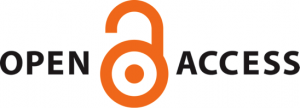Normally, when we think of legal treatises we think of current legal treatises and not historical ones. With copyright, especially, the legal treatises that existed at the time can provide an important window to the past and how legal scholars thought or would have thought about a specific legal issue at the time since the courts have decided so few copyright cases. Because of that, here at the University of North Carolina’s Scholarly Communication Office, we will be highlighting historic copyright treatises that were quoted by the Supreme Court interpreting the 1909 Copyright Act, which we still must use for historic materials. To that end, out first book review is Benjamin Kaplan’s An Unhurried View of Copyright.
Kaplan, B. (1967). An Unhurried View of Copyright. New York: Columbia University Press.
Benjamin Kaplan was a professor of Copyright Law and Civil Procedure at Harvard Law School from 1947 to 1972. He left Harvard law School to serve on the Massachusetts Supreme Judicial Court, where he served from 1972 to 1981. In 1961, Professor Kaplan wrote “Study 17: The Registration of Copyright” for the Library of Congress’ Copyright Office when Congress was considering a General Revision to the Copyright Code. He was often associated with Melville Nimmer as being an expert on copyright law during his lifetime. This book was quoted by the Supreme Court on 3 different occasions: Campbell v. Acuff-Rose Music, Inc., 510 US 569, 592 (1994); Sony Corp. of America v. Universal City Studios, Inc., 464 US 417, 465 & 468 (1984); and Fortnightly Corp. v. United Artists Television, Inc., 392 US 390, 392, 402, & 403 (1968). Its first citation in a Supreme Court opinion was two years after its original publication in 1966.
This book is a different kind of legal authority than what is normally seen. Unlike other works, which will be discussed later, this work is not a treatise. Professor Kaplan was invited to his alma mater, Columbia Law School, to speak as part of the James C. Carpentier Lectures — a series that has been discontinued. The book is a collection of three different lectures. The first lecture is titled “The First Three Hundred Fifty Years.” Despite the title, this lecture traces the history of copyright law from its earliest theoretical concept in 1485 and ends before the 1909 Act. Although Kaplan breezes through this early history, he provides an interesting analysis often unseen in copyright legal history by starting before the Statute of Anne. This chapter would be a great introduction to non-law students or professionals who need or want an introduction to American copyright law. Kaplan’s lecture is readable and easy to follow; it should make for an easy introduction to historic copyright law.
The second lecture is a typical review of the 1909 copyright act and its effects.
Finally, the third lecture is called “Proposals and Prospects.” The final lecture is in regards to the proposed legislation that he had worked on with Congress. Kaplan advocates for what he believes the future of the Copyright Act should be, including his opinions on 89 H.R. 4347 or the “Copyright Revision Bill.” While the Supreme Court has not quoted from this section of the work, this lecture is worth the read. Congress eventually codified most of Kaplan’s advocated positions with the 1976 Act. While this work may not be legally persuasive when working with either the 1909 or 1976 Act, it provides an interesting perspective on these issues.
You should read An Unhurried View of Copyright. The book is short at 130 pages and was very influential during its time. While few courts have quoted the work in the last 10 years, cases where the courts have quoted Kaplan are still important decisions. As one example, Campbell v. Acuff-Rose Music, Inc. is a seminal copyright case. This case mostly completely recognized transformative use, and fair use analysis in academia often relies on this decision. Kaplan’s influence in copyright law is still felt to this day and his thoughts are worth the read.
